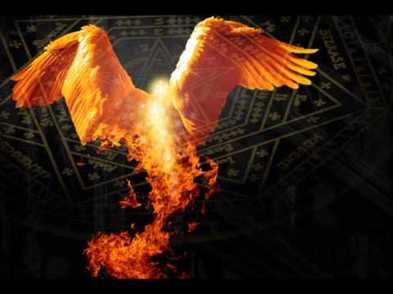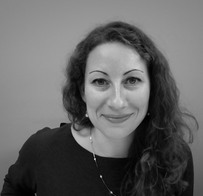|
Review/Essay Helen de Búrca on her winning story in the Strands International Short Story Competition  Stories are like dreams; as for dreamers, it’s not always obvious to the writer where they originate. Even for a story like “The Fiery Angel”, which is of course based on the theme of fire, I’m not entirely sure how the different parts of it came together. Writing to a theme or prompt is intriguing: the exercise of shaping a broad concept into a specific narrative sparks unexpected images and taps into concerns or fears that may be conscious but often are not. So, when I began to think about fire as a theme, one idea quite soon imposed itself: that of people bursting into flames. If I think about it consciously, this image is not as unexpected as it first appeared. Western Europe, where I live, is currently in a state of panic and paranoia, and this seems to worsen day by day. In many ways, we have less cause to fear than most parts of the world, where daily violence, repression and instability, hunger and poverty, or danger from natural phenomena destabilised by human greed, are hourly risks. The word “terrorism” has insinuated itself into our psyches like a menacing shadow. Many speak of it as if it were a new fear, although it is not. Many forget that terrorism will, for the vast privileged majority, probably remain no more than a fearful word, even though many of us may know someone who has been affected in some way by the most recent acts of terrorism in Europe. Many forget, or do not notice, that it is a vague term, a coverall, a net that is increasingly thrown over any act of apparently motiveless, organised, non-state violence. It is a word that has the power to control, no matter who wields it, for it means both far more and far less than what the dictionary attributes to it. How better to scare people into submission than by using language in this way? How better to make people comply than to tell them that they must act and think in a certain way in order to be protected, or at least in order to avoid being the next victims – which is to say that by not acting and thinking as instructed, they may be the next direct sufferers? There has been a lot of talk of the abuse of language recently; in a nationwide act of ironic consumerism, George Orwell’s 1984 has apparently sold out in the United States. The day on which “The Fiery Angel” gripped me and did not release me until a first draft was glaring back at me from the screen was also the day – a few hours before this story wrenched itself into being – on which the unbelievable result of the U.S. election was announced. So it is not so wonderful that “The Fiery Angel” roared out from a dark place. Even the reference to Sergei Prokoviev’s opera, which seemed an appropriate intertext because it involves, among many other things, demonic possession and the seduction of a woman by what she thinks is an angel but is in fact a man, also suggested to me the way in which repressive regimes suppress culture in order to prevent independent thought. The character of Dr Sidney naturally revealed himself as a brother of Orwell’s cultured O’Brien, or of certain Nazis who managed to reconcile destructive and sadistic beliefs and acts with a genuine passion for music and literature. I know little about the background to Prokoviev’s Fiery Angel, but I discovered it last year when it was recommended to me during a discussion about another Russian opera, Lady Macbeth of the Mtsensk District, in which I became interested partly thanks to Julian Barnes’ The Noise of Time and partly thanks to a wonderful translation by Fabrice Guibentif of the libretto (which all just goes to show how one idea gives birth to others). The story of, or rather the background to, Lady Macbeth of the Mtsensk District was also an influence when I wrote “The Fiery Angel”, for, in the sufferings of its author, Dmitri Shostakovich, it is the story of how culture may be suppressed and instrumentalised. It seems almost fateful that, just a while after discovering this, I came to read Madeleine Thien’s wonderful novel Do not say we have nothing, which is, like The Noise of Time, about music, and particularly about how music and musicians were used and abused during and after the Cultural Revolution in China. It is a hard-hitting novel, and yet it is also about how culture finds ways to subvert its own manipulation; and although it’s questionable whether Shostakovich ever felt free of the yoke, nevertheless, Lady Macbeth too has survived the gag order that was placed upon her. Despite all of this, it has been a surprise to me to see increasingly dystopian and horrific stories issuing from my metaphorical pen (I mostly type my stories, in an effort to maximise my writing time, of which I have far too little). After all, I don’t intentionally read very much dystopian fiction, although when I was younger I was a devourer of the stories of M. R. James, H. P. Lovecraft, Edgar Allen Poe and as many examples of Gothic horror as I could get my hands on. The last overtly dystopian material I read was Louise O’Neill’s accomplished, chilling debut, Only ever yours, and, much more recently, the Irish literary journal The Stinging Fly’s winter 2016-17 issue on the theme of horror and fantasy. However, as with the cliché that it is the wars and not the peacetimes that history catalogues, it is difficult to shape a narrative of any sort without including conflict; or perhaps I’m seeing dystopia everywhere when I consider some of my last memorable reads: Liam O’Flaherty’s Famine, which, inexplicably, has not been re-issued for decades, is in many ways about the end of the world; Shirley Jackson’s The Lottery and other stories delivers us into an uncanny parallel universe – and that is just in the stories of everyday suburban life; Bulgakov’s The Master and Margarita offers up a world that may function according to an entirely different logic to that of our own – or may not be so different; while Tom McCarthy’s Remainder is an extreme reminder, similar to that of Éric-Emmanuel Schmidt’s Le secte des égoïstes, that each of us literally shapes the world to fit our own view of it… Then again, I have also recently read Isabel Allende’s El Amante Japonés, Lia Mills’ Fallen, Rose Tremain’s The Road Home and Sarah Waters’ The Paying Guests, all of which contain dark material but end on a note of hope. I can only hope that there is hope for us all…  Helen de Búrca was born in Ireland and lives in Geneva, Switzerland. Her work has been recognized by the Cúirt New Writing Prize, the Sunday Business Post/Penguin Ireland Short Story Prize, the 2016 Nivalis Short Story Competition, the “Dalkey Creates” Short Story Competition, the Wasafiri New Writing Prize and the Aesthetica Creative Writing Award. She writes in English and French.
0 Comments
Leave a Reply. |
StrandsFiction~Poetry~Translations~Reviews~Interviews~Visual Arts Archives
April 2024
Categories |
 RSS Feed
RSS Feed